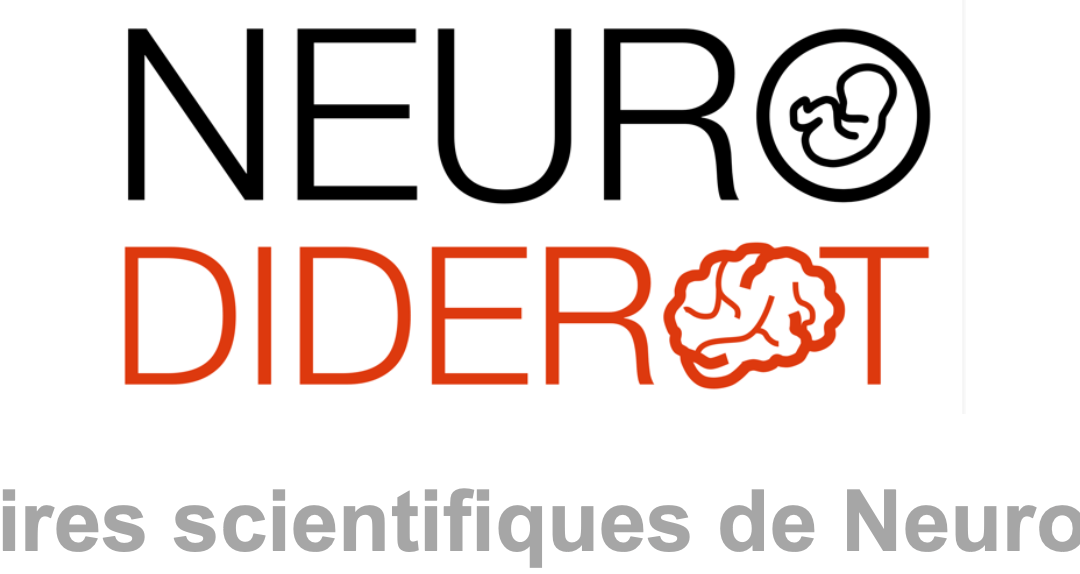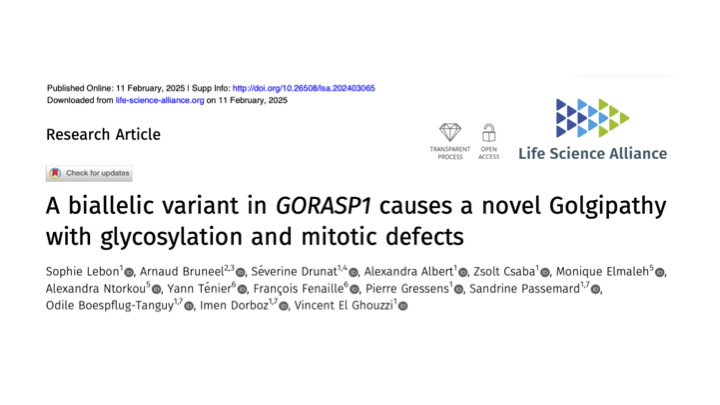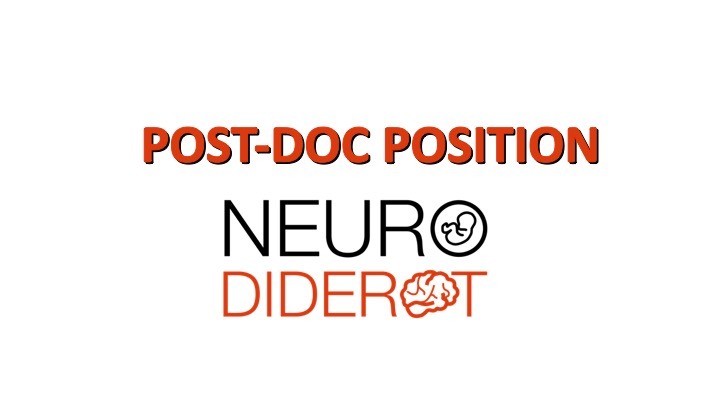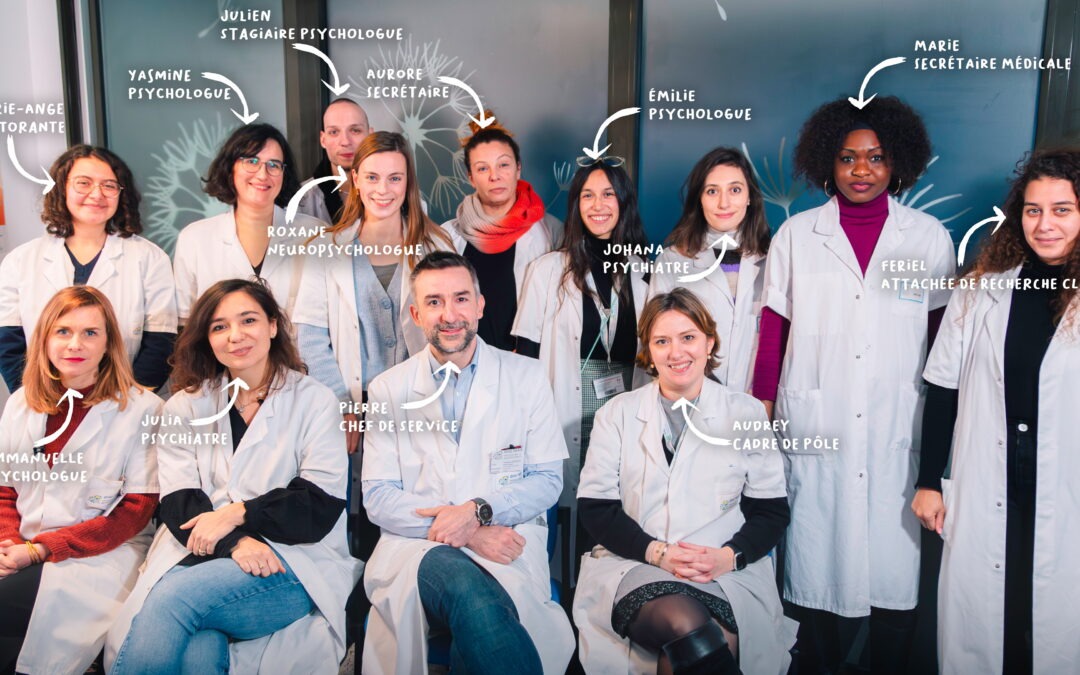InDev
The inDev team conducts research on the anatomo-functional variability, vulnerability and plasticity of the brain during typical and non-typical development. Our research combines clinical, behavioral and neuroimaging assessments. Our team is located at the Robert Debré Hospital and at the NeuroSpin center (CEA-Saclay).

The inDEV team relies on phenotypic brain markers (e.g., MRI, EEG) and behavioral markers (e.g., neuropsychology) to characterize – in populations of patients and children at risk of neurodevelopmental disorders, in comparison with typical subjects – the anatomical and functional development of sensorimotor and neurocognitive functions (e.g., language, memory) in relation to different pathological patterns (e.g., prenatal alcohol exposure, prematurity, neonatal stroke, hypoxia).
© inDEV, Inserm, CEA, APHP
Neurodevelopmental disorders: a major public health issue
Neurodevelopmental disorders, characterized by focal or diffuse brain dysfunction of early onset, correspond to more or less severe and selective disturbances of neurocognitive functions in children. These frequent (up to 10% of an age group) and polymorphic disorders are expressed by acquisition and learning disorders, with a cognitive and/or sensory and motor expression.
The management and treatment of these disorders and their co-morbidities require a better characterization of the underlying neurobiological substrates and an understanding of their common features and interactions. The individual dynamics of behavioral, cognitive and sensorimotor phenotypes during childhood are based on major plasticity phenomena, specific to brain immaturity and dependent on physiological variability and the environment. Magnetic resonance imaging (MRI) and electro- and magnetoencephalography (EEG and MEG) explorations are unique methods for in vivo exploration of the development of cerebral functional architecture. Longitudinal studies can be performed due to the non-invasive nature of these methods.
Research objectives
The inDEV team aims to better characterize the anatomical and functional variability of brain development that supports the emergence and development of neuro-cognitive functions, from birth to adolescence, longitudinally whenever possible, in selected pathological models and in comparison with the dynamics of typical development.
For this, a multimodal approach is promoted with:
- phenotypic behavioral markers (neuropsychology, experimental psychology, oculometry)
- phenotypic brain markers (advanced imaging by MRI, PET-MRI, electrophysiology by high density EEG, functional ultrasound)
Pathological models studied
The models studied share an early antenatal or perinatal determinism:
- embryo-fetopathy caused by fetal alcoholization (or fetal alcohol spectrum disorders)
- disturbances in the third trimester of pregnancy (prematurity, fetal growth restriction)
- perinatal accidents (with or without cerebral palsy)
- early malformations of cortical development resulting in early and refractory epilepsy that impacts cognitive development
- hippocampal dysfunction (temporal lobe epilepsy, neonatal hypoxia) in relation to memory disorders
A multidisciplinary team
Our team is composed of researchers and clinician-researchers, experts in the fields of cognitive and integrative neuroscience, neuroimaging, neuropediatrics, neuropsychology and neurophysiology.
Co-labeled by Inserm and CEA, it is located on the sites of Robert-Debré Hospital (AP-HP, Université Paris Cité) and NeuroSpin (CEA, Université Paris-Saclay) where it is hosted within the Clinical and Translational Applied Neuroimaging Unit (UNIACT). This unique position favors interactions between clinical and fundamental research, allowing the development of studies at the Robert-Debré Hospital of cohorts of fragile pediatric patients. Our interface and translation approach is made possible by the use of research imaging instruments available on both sites (3T MRI and high-density EEG) while benefiting from advanced tools and methods of data acquisition and analysis at NeuroSpin (3T and 7T MRI, MEG, computer-assisted neuroimaging, biomathematics, computer modeling …)
The inDEV team develops collaborations with other teams of the U1141 whose related themes are fed by a complementary valence of preclinical research. It is part of the Center of Excellence on Autism Spectrum Disorders and Neurodevelopment (InovAND) which promotes collaborations with the neonatal, clinical genetics and child and adolescent psychiatry departments of the Robert-Debré Hospital. The team maintains close collaborations within NeuroSpin with the UNICOG unit in the field of developmental cognitive neuroscience and with the BAOBAB unit in computational neuroanatomy. Numerous external collaborations are privileged with national and international networks of clinical research teams (e.g., reference centers on childhood stroke, on intellectual deficiencies of rare causes in France, European network on cerebral palsy) or more fundamental research teams (e.g., MeCA team Timone Neurosciences Institute).
Recent publications
NeuroDiderot Teams
Read more

Conference Dr. Boris Chaumette
Seminaire Dr Boris Chaumette

New Golgipathy identified in NeuroDev team
The NeuroDev team publishes an article in Life Science Alliance [1] identifying the first human pathogenic variant of GORASP1, the gene encoding the Golgi stacking protein GRASP65, and demonstrating its consequences on glycosylation and mitotic progression. [1] S....

Post-doc opportunity (1-2 years) within the group “Mitochondria and NDD” in the NeuroDev team
POSITION DESCRIPTION Postdoctoral position in the field of Neurosciences Type of contract: temporary position (CDD) Contract/project period: 1-2 years Expected date of employment: 1.04.2025 Proportion of work: 100% Workplace: Université Paris Cité, Inserm,...

Advancing psychiatry through Sleep and Chronobiology research
The “Mood” research axis of the SleepCmd team is dedicated to understanding the intricate links between sleep, circadian rhythms, and mood disorders such as depression, bipolar disorder, seasonal affective disorder, and suicide. Using state-of-the-art methods, the...
